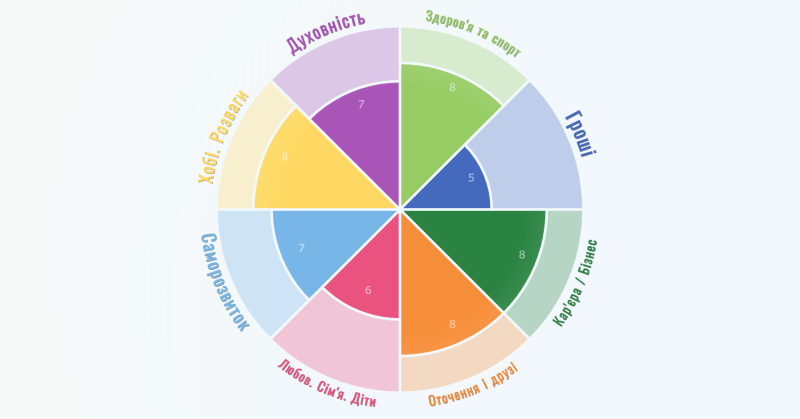
Diet depression: why dieting ruins your mood and how to get it back
0
Only a few people are able to be cheerful and cheerful, full of strength and optimism during the weight loss process. We tell you why this happens
Just thinking about a diet can ruin your mood and make you want to kill everyone? But why does the psyche resist seemingly positive changes in nutrition so much? Because most often diets do not bring anything positive.
Your mood is determined by how you eat
Nutrition is one of the factors that directly affects mood. After all, lack of food is a huge stress for the body. A lack of essential nutrients and vitamins, a lack of calories, and therefore energy — everything that directly threatens the vital activity of the body has a negative effect on the psyche.
In addition, often restricting ourselves in food, we do not always achieve our goals. After all, losing weight is not such an easy task. For example, if you simply reduce the calorie content of food, it is not a fact that the weight will decrease. Changing the body's metabolism also requires strength and energy, which can only be obtained from food. Therefore, stopping eating is not an option and eating as little as possible, too.
By the way, eating disorders can also reduce mood. When a person does not eat for a long time, all their thoughts are focused only on food. Psychologists call this “food-extracting behavior”.
Therefore, the expert does not recommend making intervals between meals longer than four hours, otherwise not only will your mood deteriorate, but the risk of overeating will also increase. In addition, the longer the fasting period, the less picky a person will be about food, or they will start to quickly absorb food, which is also not good for the body and figure.
Set up contact with the body
But even if you leave aside diets and start to be more conscious about food, avoiding overeating, such a restructuring will still require a lot of mental strength. How can you maintain your working capacity and normal mood? For example, will foods that promote the production of serotonin and other mood hormones help: chocolate, black pepper, coffee, bananas, etc.?
As a convinced expert, a person's mood depends not so much on the composition of the food consumed, but on its harmony with the needs of the body. There is such a thing as intuitive nutrition. Each of us is endowed from birth with the ability to understand what exactly he needs. Let's say, today he wants fish and the body needs to be given it, and tomorrow he doesn't have the strength, he craves chops, and here too it is better not to argue. The body is smarter: if it lacks protein and hemoglobin decreases due to this, it signals “I want meat!”. If the bones lack calcium, then a person will be tempted to drink a glass of milk and eat cheese.
If you eat normally and don't get carried away with diets, it will be easier for your body to reach you. But if you jump from one diet to another, and from there to another, you can lose touch with your own body.
“Not only food is important, but also the way and time of its consumption,” clarifies Natalia Samoilenko. For example, it is known that not only a lack of calories, but also overeating often leads to a decrease in mood.”
Other nuances of nutrition can also have a negative impact on the psychological state. Let's say you wanted to eat a banana with cheese, but had to finish what was left of dinner. In this case, you can also feel disappointment and negative emotions.
For an aesthete, for example, the appearance of the dish is no less important; if you just pile food on his plate, he will be upset. Such a person would rather go hungry than agree to eat anything. And for another, on the contrary, there is nothing nicer than a quick snack of shawarma near the metro, and then quickly run off again. Any needs of the body should be taken into account.
Pay attention to the quality of life

“There are many ways to improve your mood without the help of food,” says the psychologist. “Undoubtedly, this is fresh air, good sleep, intimate relationships, communication with friends and family, physical activity. It is no less important to assess your internal resources in a timely manner and give your body the rest it needs.” To make it easier to survive the necessary changes, it is important to make adjustments to your lifestyle, first of all, replace your usual passive pastime with something more active. For example, instead of a Friday meal with friends in a restaurant, suggest that they take a walk in the park or go on a city tour. Eliminate unhealthy preferencesIt is also important to avoid the temptation to boost your mood in undesirable ways. For example, with the help of alcohol. This can lead to the development of drinkorexia – an eating disorder in which a person replaces one or more meals with alcohol.
“Alcohol cannot be a tool to lift your mood,” warns nutritionist Natalia Samoilenko. “If you feel good and want to feel even better, you can have a glass of wine, but if you feel bad but want to feel better, don’t drink. This is a dangerous path that will not lead to anything good. It is important that alcohol is included in the diet no more than 1-2 times a week, and that alcohol is consumed not instead of food, but in addition to it.”
And what about physical activity? Can it become an alternative to antidepressants, the need for which increases when a person dramatically changes their lifestyle and eating style?
Sport helps improve metabolism, produces good hormonal levels, and also improves a person's contact with their own body. But it is not an antidepressant.
Moreover, people often demonstrate so-called avoidance behavior through excessive physical exertion. By doing sports with all their might, they drown out depression. Recent studies have shown that daily intense physical exertion negatively affects the psyche.
Nevertheless, sports can improve mood, but only if a person has a desire to do it. Cardio (step aerobics, dancing, elliptical, jumping, running) are the best ways to improve hormonal and emotional balance. But if a person comes to sports, but feels uncomfortable, feels, for example, a sense of shame or guilt, then there will be no benefit on an emotional level (only biologically)”.
So if your mood is at zero, it is better in this case to just go for a walk with friends or go to the movies with them.
Lift your mood

The wheel of life consists of eight sectors: health, relationships, environment, recognition, security, self-improvement, brightness of life and spirituality
Auto-training, meditation, prayer – everything that increases your harmony with your soul and body improves your mood, the expert believes. After all, the responsibility for your own mood lies primarily not with others, but with us.
As psychologists say, the first method of self-help is to review your life.
There is the so-called wheel of life. It can be easily found on the Internet. This circle consists of eight sectors: health, relationships, environment, recognition, security, self-improvement, brightness of life and spirituality. Each sector includes several moments. Let's say the concept of “health” includes: well-being, appearance, mood, mobility, nutrition, regime, sleep, sports. And the components of spirituality are: faith, creativity and art.
Try to analyze each of the components of the wheel of life and understand whether today there is enough rest, food, communication, self-development for you to feel harmonious. Be sure to look for new ways to improve and enrich your life. For example, try going to or visiting a place you haven't been to in a long time: a theater, a conservatory, a museum, a stadium. Or come up with something more interesting.









Leave a Reply